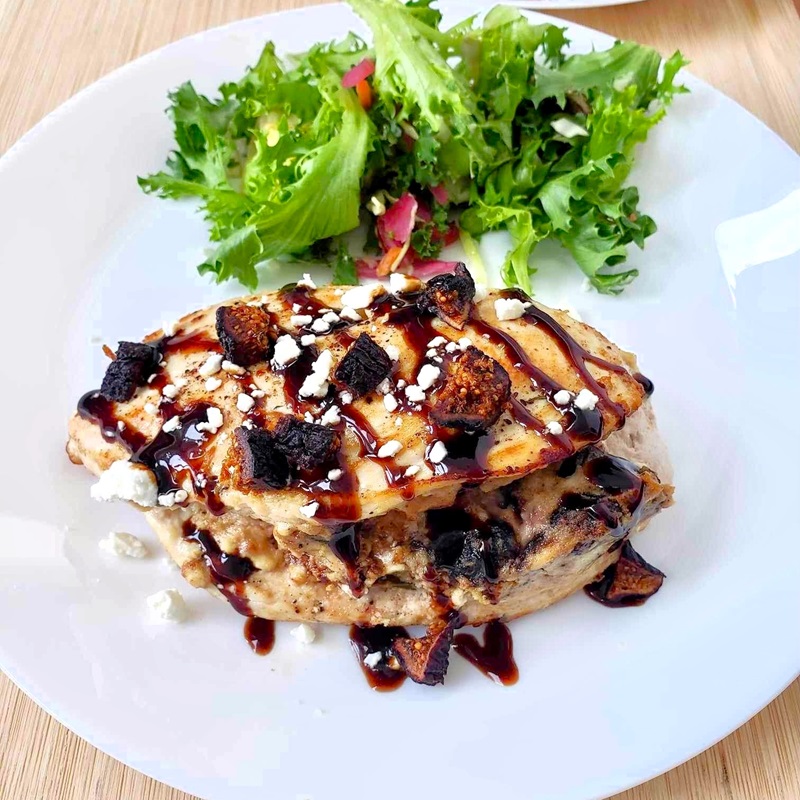Diet and Nutrition
Understanding the Relationship between Plant-Based Diets and a Strong
As more people turn to plant-based diets for various reasons, including environmental sustainability, ethical considerations, or a desire to return to nutrition in the way it was intended by God, questions arise about the potential impact on health, including immunity. In this blog post, we will explore the relationship between a vegan diet and a strong immune system, including key nutrients to focus on and tips for maintaining optimal immunity.
The Link Between Plant-Based Diets and Immunity
Rev. Malkmus has said, “Our health is dependent to a great extent on how strong we keep our immune system through diet and lifestyle. An excellent diet and lifestyle keeps our immune system strong and resilient, while a poor diet and lifestyle weakens our immune system and makes it susceptible to germs, viruses, bacteria, and cancer.”
Fortunately for us, research has shown that plant-based diets can positively impact immunity. A 2019 study published in the Journal of the American College of Nutrition found that vegans had a higher concentration of certain immune cells, such as natural killer cells, than omnivores. This may be due to the higher intake of nutrients in plant-based foods, such as vitamins A, C, and E, which are important for immune function.
Additionally, plant-based diets are often high in fiber, which helps to support a healthy gut microbiome. The gut microbiome plays a major role in immune function, as it is responsible for developing and regulating the immune system. Having a healthy gut can also help to prevent inflammation, which can weaken your immune system.
Key Nutrients for Immune Function on a Vegan Diet
While a vegan diet can provide most of all the nutrients needed for a strong immune system, there are a few key nutrients to be mindful of:
Vitamin C:
This powerful antioxidant is important for immune function and can be found in high amounts in citrus fruits, berries, broccoli, and bell peppers. Vitamin C can help to protect immune cells from damage caused by free radicals. Additionally, it plays a key role in producing white blood cells, which are critical for fighting infections.
Vitamin D:
Vitamin D is an essential nutrient that plays a crucial role in immune function, bone health, and overall health and well-being. While small amounts of vitamin D are primarily found in animal products such as fatty fish, eggs, and fortified dairy products, it is possible to obtain vitamin D from fortified plant milks and mushrooms.
Sun exposure is another way to obtain vitamin D. When skin is exposed to sunlight, the body can synthesize vitamin D. However, it is important to note that the amount of vitamin D produced by sun exposure can vary depending on a variety of factors, such as time of day, season, latitude, age, and skin color. Additionally, excessive sun exposure can increase the risk of skin damage and skin cancer, so it is important to practice safe sun exposure habits.
Zinc:
Zinc is involved in numerous processes in the body, including DNA synthesis, protein synthesis, and cell division, and it plays a critical role in immune system function. Zinc deficiency can lead to impaired immune function and an increased risk of infections.
Fortunately, zinc can be obtained from various plant-based sources. Legumes such as chickpeas, lentils, and black beans are particularly good sources of zinc, as are nuts and seeds such as pumpkin seeds, cashews, and almonds. Other plant-based sources of zinc include whole grains, tofu, and fortified breakfast cereals.
Iron:
Iron is a crucial mineral for immune function and overall health. It’s important for immune system function, as it plays a role in producing white blood cells that help fight off infections. While iron is often associated with animal-based foods such as red meat, it is also found in many plant-based sources. Leafy greens such as spinach, kale, and Swiss chard are excellent sources of iron, as are legumes such as lentils, chickpeas, and black beans. Other plant-based sources of iron include fortified grains, cereals, and tofu.
Tips for Maintaining Optimal Immunity on a Vegan Diet
In addition to focusing on key nutrients, additional health habits will help you maintain a strong immune system.
Variety Is Key:
Eat a variety of plant-based foods to ensure a range of nutrients. For example, citrus fruits are high in vitamin C, which is important for immune function, while leafy greens are high in beta-carotene and other antioxidants that can help to support immune health.
Supplement When Needed:
Consider taking a vegan multivitamin to ensure an adequate intake of key nutrients. If you need a boost on top of your healthy diet and lifestyle, learn more about our Immune System Boosters and Supplements. These kits include powerful supplements that can help enhance your immune system.
Try Fermented Foods:
Incorporate fermented foods, such as tempeh and sauerkraut, to support a healthy gut microbiome. Fermented foods are rich in beneficial bacteria known as probiotics, which can help to improve the balance of bacteria in the gut and support immune function.
When we consume fermented foods, the probiotics they contain can help to populate the gut with beneficial bacteria, which can compete with harmful bacteria and promote a healthy balance of microorganisms. Choosing fermented foods that are minimally processed and contain live cultures is important to ensure maximum benefit.
Stay Hydrated:
Stay hydrated by drinking plenty of water. Adequate hydration is important for overall health and well-being and is key to immune function. Water helps to carry nutrients to immune cells and flushes out toxins and waste products, which can improve immune system efficiency.
In addition to water, herbal teas can provide additional health benefits. Some herbal teas, such as green tea and echinacea tea, are high in antioxidants that can help to protect immune cells from damage caused by free radicals. Other herbal teas, such as chamomile tea and ginger tea, have anti-inflammatory properties that can help to reduce inflammation in the body, which can weaken the immune system.
Manage Stress:
Take care to manage stress, as chronic stress can weaken the immune system. Be thankful, read and meditate on scripture, pray, find peace, take a walk, whatever works best for your unique needs. Some tips for managing stress can be found in our blog 11 Secrets to Managing Your Stress.
Conclusion
Overall, a thoughtful vegan diet can support a robust immune system by providing key nutrients and supporting a healthy gut microbiome. By focusing on nutrient-dense plant-based foods and incorporating healthy lifestyle practices, vegans can maintain optimal immunity and support their overall health and well-being.
#Understanding #Relationship #PlantBased #Diets #Strong
Related Posts
- Principally Plant-Based mostly – BionicOldGuy
That is the title of a ebook I loved by Mia Syn, a registered dietician…
- Coming Quickly: Snickerdoodle Plant-Based mostly Vegan Shakeology
*Be aware: This text is meant for our Canadian clients. Get able to shake up…
- Canadian path famous person Priscilla Forgie shares plant-based suggestions and treats
Edmonton’s Priscilla Forgie is without doubt one of the hottest names in Canadian ultrarunning proper…


















